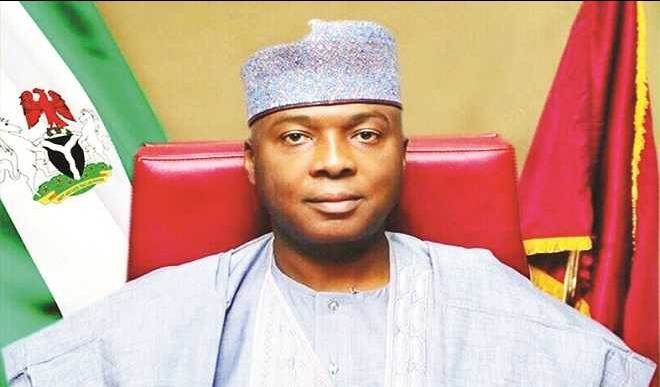Trade Union activist and labour leader, Issa Aremu has admonished Senate President, Bukola Saraki to emulate the legacy of his late father, Olusola Saraki on passage of the new National Minimum Wage Bill.
Aremu who spoke to the News Agency of Nigeria (NAN) in Ilorin recalled that the late Saraki, as the Senate leader, presided over the Senate committee that midwife the emergence of the first national minimum wage in 1981 under President Shehu Shagari.
The labour leader who described the late Saraki as “a wonderful symbol of democracy,’’ who showed concern to the plight of workers urged the Senate President to also write his name in gold by reconvening the Senate to pass the new Bill.
“The Senate President, Bukola Saraki should be on duty regarding this all important Bill. I remind him to emulate his father.
“Today he is going up and down as Campaign Director-General of the Peoples’ Democratic Party’s candidate, Alhaji Atiku Abubakar, but he should remember that he has not resigned as the Senate President.
“He should resume his work to pass the Bill to concur with the House of Representatives,’’ he said.
Aremu said that the Senate President must see the Bill as a total commitment and therefore, suspend partisanship to resume his statesmanship work in the National Assembly.
“He must declare his position on the N27,000 and N30,000 recommendations.
“He must act fast like the Speaker of the House of Representatives, Hon. Yakubu Dogara did, so that we can make it a reality and the President will sign the Bill into law’’ he said.
Aremu, the former Secretary-General of the National Union of Textile Garment and Tailoring Workers of Nigeria commended the House of Representatives for promptly passing the National Minimum Wage Bill.
He also hailed the lower chamber for endorsing N30,000 minimum wage across board Federal and State governments, ensuring that the minimum wage could not be polarised.
NAN recalls that the government and organised labour had been at loggerhead over the upward review of the national minimum wage currently at N18.000.
Government had constituted a minimum wage tripartite committee led by the former Head of Service of the Federation, Ms Ama Pepple which recommended N30,000.
The Federal Government had agreed to pay the N30,000 while the state governments insisted on N22,500.
Following a threat by the organised labour to shut down the economy if the government failed to send an Executive Bill to the National Assembly on the N30,000 minimum wage, the issue was tabled before the Federal Executive Council, the National Economic Council and the National Council of State.
The National Council of State had approved the sum of N27,000 which the Federal Government, however, said it would increase to N30,000 for its workers.
Labour had rejected the N27,000 recommendation contending that the Council had no power to change the N30,000 agreed to by a tripartite committee.
President Muhammadu Buhari in January transmitted the Bill to the National Assembly for passage into law. (NAN)

 Join Daily Trust WhatsApp Community For Quick Access To News and Happenings Around You.
Join Daily Trust WhatsApp Community For Quick Access To News and Happenings Around You.


